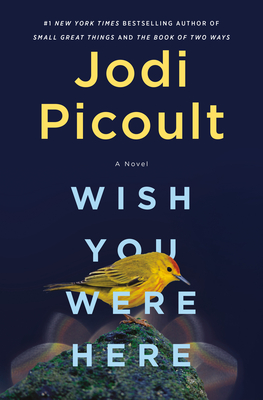
Wish You Were Here:
Chapter 16: Sixteen
by Picoult, JodiThe chapter “Wish You Were Here” opens with a stark and emotional tone, as the narrator describes their physical state—eyes swollen shut—suggesting intense grief or exhaustion. The brevity of the lines underscores a sense of despair, with the narrator’s inability to rise with the sun symbolizing a disconnect from the natural world or a loss of motivation. The title itself, “Wish You Were Here,” hints at longing or absence, possibly reflecting a deeper emotional narrative.
The imagery of the swollen eyes and the rising sun creates a poignant contrast between the narrator’s inner turmoil and the external world’s continuity. While the sun represents renewal and hope, the narrator’s immobility emphasizes their emotional paralysis. This juxtaposition highlights themes of isolation and unprocessed pain, as the narrator seems trapped in their suffering, unable to engage with the new day.
The chapter’s sparse language amplifies its emotional weight, leaving much to interpretation. The narrator’s refusal or inability to rise suggests a rejection of the day’s possibilities, perhaps due to overwhelming sadness or a sense of futility. The absence of additional context forces readers to focus on the raw emotion conveyed in these few lines, making the chapter a powerful snapshot of despair.
Ultimately, this brief chapter serves as a meditation on grief and disconnection. The narrator’s physical and emotional state reflects a profound struggle, while the title and imagery evoke a sense of longing for someone or something lost. The minimalist style reinforces the intensity of the narrator’s experience, leaving a lasting impression of solitude and unspoken pain.
FAQs
1. What is the significance of the narrator’s swollen eyes in the opening line of the chapter?
Answer:
The narrator’s swollen eyes suggest intense emotional or physical distress, possibly from crying, exhaustion, or injury. This imagery creates a sense of vulnerability and sets a somber tone for the chapter. The contrast between the rising sun (a symbol of renewal or a new day) and the narrator’s inability to “rise” (either literally or metaphorically) underscores their state of despair or inertia. The swollen eyes could also imply a refusal or inability to see or face reality, reinforcing the chapter’s themes of emotional struggle and disconnection.2. How does the juxtaposition of “The sun rises” and “I don’t” contribute to the chapter’s emotional impact?
Answer:
This juxtaposition highlights a stark contrast between the natural world’s cyclical renewal and the narrator’s personal stagnation. While the sun’s rise symbolizes hope, energy, and continuity, the narrator’s immobility (“I don’t”) suggests emotional paralysis, depression, or resignation. The brevity of these lines amplifies their weight, creating a poignant sense of isolation. This technique emphasizes the narrator’s disconnection from the world around them, deepening the reader’s understanding of their inner turmoil.3. What might the chapter title “Wish You Were Here” imply about the narrator’s state of mind or circumstances?
Answer:
The title suggests longing or absence, possibly hinting at grief, loneliness, or unfulfilled desire. It could reflect the narrator’s yearning for someone who is physically or emotionally absent, amplifying the themes of isolation in the chapter. The phrase might also carry irony—while the narrator expresses a wish for companionship, their swollen eyes and inability to “rise” imply they are emotionally unavailable themselves. This duality invites reflection on the complexities of human connection and despair.4. Analyze how the chapter’s minimalist style affects its tone and thematic resonance.
Answer:
The sparse, fragmented prose mirrors the narrator’s psychological state—stripped down, raw, and devoid of excess. The lack of detail forces readers to focus on the emotional weight of each word, creating an atmosphere of emptiness and introspection. This style also leaves room for interpretation, allowing readers to project their own experiences onto the narrator’s plight. The brevity underscores themes of absence and silence, making the few words chosen (e.g., “swollen,” “don’t”) resonate more powerfully.5. How might this chapter serve as a metaphor for broader human experiences?
Answer:
The chapter captures universal feelings of despair, inertia, and disconnection. The narrator’s physical and emotional shutdown reflects experiences like depression, grief, or existential crisis, where individuals feel out of sync with the world. The sun’s relentless rise despite human suffering parallels nature’s indifference to personal pain, a theme seen in literature and life. This metaphor invites readers to reflect on resilience, the passage of time, and how people navigate moments when they feel “left behind” by life’s forward motion.
Quotes
1. “My eyes are swollen shut.”
This opening line powerfully conveys physical and emotional distress, setting a tone of suffering and isolation. The imagery suggests both recent trauma and an inability to see or perceive clearly.
2. “The sun rises.
I don’t.”
This stark contrast between natural cycles and human despair captures the chapter’s central theme of disconnection. The brevity and parallelism make it particularly impactful, showing how personal darkness persists despite the world’s continued motion.
